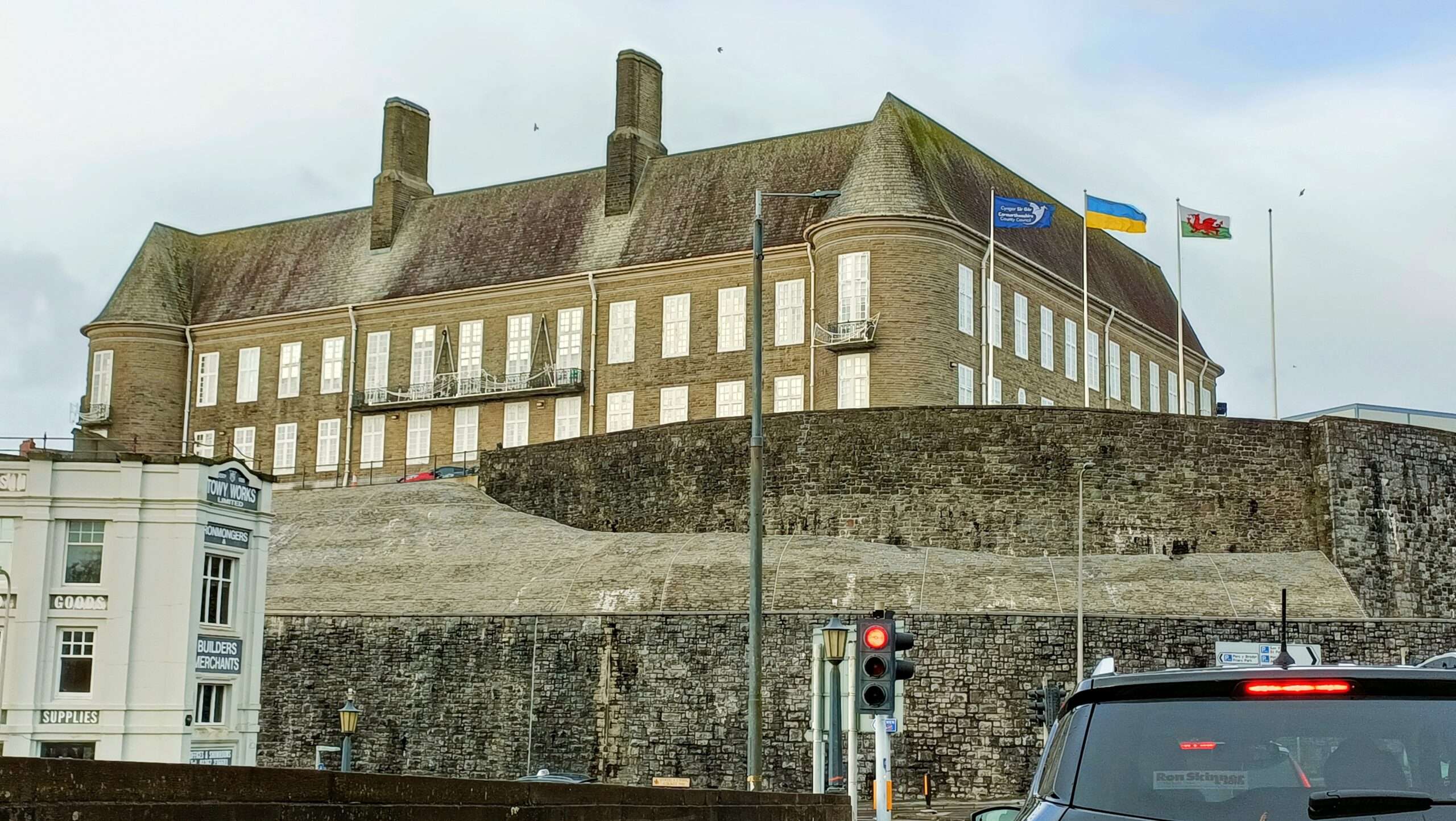Mick Antoniw, Wales’ counsel general, raised concerns about Adam Price’s proposals to disqualify politicians from the Senedd for deliberate deception.
The ex-Plaid Cymru leader’s amendment to the elections and elected bodies bill, which would create the offence of deception, was agreed after Labour’s Lee Waters abstained.
Giving evidence to an inquiry on accountability, Mr Antoniw said: “I’ll put my neck on the line at the moment and say I don’t think criminalisation is the way that it actually works.
“I think it’s actually unworkable probably.”
He said the issue would be best considered by the standards committee inquiry, suggesting Welsh ministers will try to delete the clause during the next amending stage set for July 2.
Recall
Vikki Howells, the Labour backbencher who chairs the standards committee, asked whether Wales should adopt Westminster’s approach to removing MPs between elections.
In the House of Commons, a recall petition can be triggered by a custodial sentence for 12 months or less, a suspension of 10 sitting days or more, or an expenses offence conviction.
Mr Antoniw broadly agreed with the criteria, emphasising the importance of consistency across parliaments while accounting for Wales-specific circumstances.
He said the 12-month threshold – above which Senedd members are already automatically disqualified – seems “rather high”, suggesting six months may be more appropriate.
Plaid Cymru’s Peredur Owen Griffiths pointed out people could be imprisoned over a matter of conscience such as protesting about the environment, nuclear or the Welsh language.
‘Step too far’
Mr Antoniw recognised the concern, saying peaceful protest is part of a democratic society, but he said a six-month threshold would exclude “nearly all of those sorts of circumstances”.
He cautioned: “Discretions are always very difficult in terms of things like disqualification.”
Asked whether a recall system should apply to members who change their political allegiance after an election, Mr Antoniw warned it may be a step too far.
The counsel general said politicians defecting to another party risks inappropriately changing the balance of the Senedd and the outcome of an election.
But he told the committee a politician could leave a party over a matter of conscience, such as a group changing its position on an issue post-election.
‘Prolonged’
Mr Antoniw argued the most effective way forward would be to ensure Senedd members cannot form or join another political party, with a requirement to sit as an independent.
He made the case for an appeals process as part of any recall system, warning the absence of one could throw up “all sorts of human rights issues” and lead to legal challenge.
But Mr Antoniw stressed the importance of proceeding at pace as he raised concerns about previous standards committee processes going on for a “very, very prolonged period”.
He argued a simple majority vote of the whole Senedd should be required to sign off on recall processes, rather than a two-thirds supermajority.
“Whips can’t apply,” he said. “I don’t think that would be appropriate in any circumstances.”
Complexities
Responding to Mark Drakeford’s concerns about the risk of a minority blocking recall, Mr Antoniw agreed with the ex-first minister that a supermajority risks over-politicisation.
Mr Owen Griffiths asked how the counsel general would envisage the process working in light of the complexities of Wales’ new fully proportional “closed-list” electoral system.
Under the members and elections bill, which is set to receive Royal Assent, people will vote for parties rather than individual candidates in future Senedd elections.
Mr Antoniw suggested a simple retain-or-replace public vote, saying it would effectively be a referendum on whether an MS should be removed.
“It’s not so much a petition because a petition is to ask permission to do something,” he explained. “And it’s not a byelection because there are no other candidates.”
‘Fairness’
He said the next person on a party’s initial list, which can include up to 12 candidates, would replace an unseated MS, retaining the make-up of the Senedd determined at the ballot box.
Asked whether parties should have discretion to later reorder lists, based on factors such as gender balance, Mr Antoniw cautioned against the added complexity.
Prof Drakeford highlighted that the 32 constituencies in Wales that will be used in the July 4 general election will be paired to create 16 for the next Senedd poll.
The Cardiff West MS suggested a threshold should be required in each constituency rather than across both, saying: “Fairness should trump anxieties about complexity.”
He said it is possible constituencies such as Blaenau Gwent and Monmouth, which have a different character, could be paired by the Electoral Commission.
‘Public expectation’
Prof Drakeford warned: “Unless you have a threshold that applies to both, one half could actually determine the outcome for the other.”
Mr Antoniw accepted issues could arise, such as between industrial and rural constituencies, but his “gut feeling” favoured the simplicity of a combined threshold.
Asked whether polls should be open for a single day or longer as in Westminster’s system, Mr Antoniw preferred the latter as he argued it would best maximise participation.
The Conservatives’ Natasha Asghar asked about the chances of a recall bill being passed before the next election, and said having 96 more MSs will raise the risk of misbehaviour.
Mr Antoniw told the June 17 meeting: “The commitment given from the Welsh Government – from the first minister – is that we would like to see this legislation in place by 2026.
“I think that is the public expectation as well.”
Please donate here: Support Carmarthenshire News Online Thank you for supporting independent journalism and contributing to the future of local news in Carmarthenshire. Carmarthenshire News Online has been dedicated to providing unbiased and trustworthy news, free from commercial or political influence. By donating as little as £1, you can help ensure the continuation of this important source of information for the community. Your contribution will have a significant impact on the sustainability of independent journalism. If you're looking to enhance your brand's visibility, we also offer advertising opportunities on our Livestream and podcasts. Our special offers provide excellent value for reaching our engaged audience. To learn more about these opportunities and to discuss your advertising needs, please feel free to call or text us at 07308598604. Thank you again for your support, and together we can ensure the availability of quality local news for Carmarthenshire and beyond.
Please donate here: Support Carmarthenshire News Online







